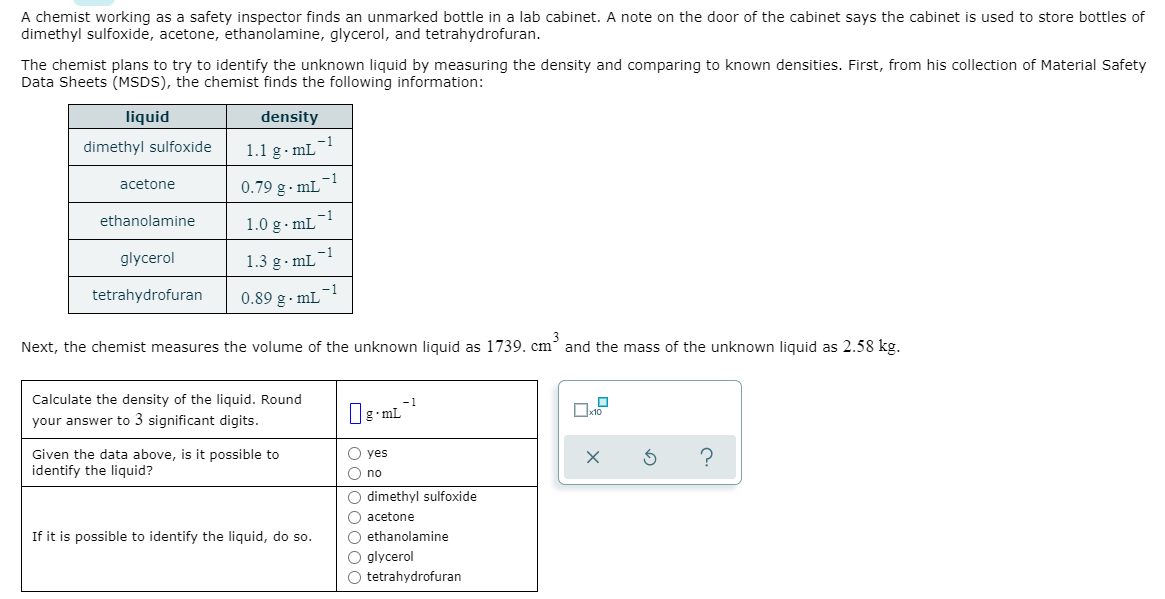A chemist working as a safety inspector finds an unmarked bottle in a lab cabinet. A note on the door of the cabinet says the cabinet is used to store bottles of dimethyl sulfoxide, acetone, ethanolamine, glycerol, and tetrahydrofuran. The chemist plans to try to identify the unknown liquid by measuring the density and comparing to known densities. First, from his collection of Material Safety Data Sheets (MSDS), the chemist finds the following information: liquid density -1 dimethyl sulfoxide 1.1 g· mL -1 acetone 0.79 g · mL` ethanolamine -1 1.0 g. mL glycerol 1.3 g · mL¯! -1 tetrahydrofuran 0.89 g · mL Next, the chemist measures the volume of the unknown liquid as 1739. cm° and the mass of the unknown liquid as 2.58 kg. Calculate the density of the liquid. Round your answer to 3 significant digits. -1 8 mL O yes Given the data above, is it possible to identify the liquid? ? O no O dimethyl sulfoxide O acetone O ethanolamine O glycerol O tetrahydrofuran If it is possible to identify the liquid, do so.
States of Matter
The substance that constitutes everything in the universe is known as matter. Matter comprises atoms which in turn are composed of electrons, protons, and neutrons. Different atoms combine together to give rise to molecules that act as a foundation for all kinds of substances. There are five states of matter based on their energies of attraction, namely solid, liquid, gases, plasma, and BEC (Bose-Einstein condensates).
Chemical Reactions and Equations
When a chemical species is transformed into another chemical species it is said to have undergone a chemical reaction. It consists of breaking existing bonds and forming new bonds by changing the position of electrons. These reactions are best explained using a chemical equation.
Next, the chemist measures the volume of the unknown liquid as
and the mass of the unknown liquid as
.
|

Trending now
This is a popular solution!
Step by step
Solved in 2 steps


